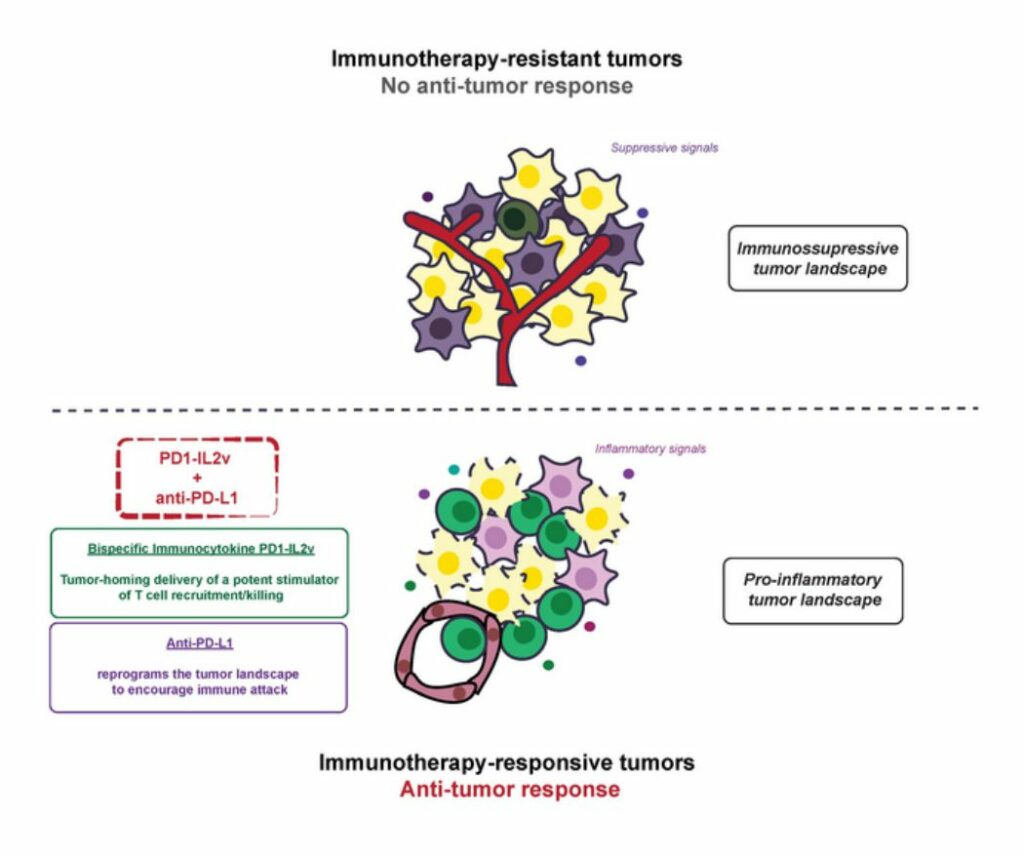Immunotherapy is a kind of cancer treatment that reprograms the patient’s immune system to target the tumor. This cutting-edge strategy has had a substantial influence on cancer therapy and has already resulted in instances of long-term remission.
Nevertheless, a large number of patients still either do not react to immunotherapy or, if they do, the benefits are often short-lived. This emphasizes the need of understanding the processes behind malignancies’ resistance to this kind of treatment.
Scientists have discovered a strategy to break down the resilience of mice with neuroendocrine pancreatic cancer in a new research.
The immunotherapy known as checkpoint blockade, in which the patient is given a drug (a checkpoint inhibitor) that blocks proteins that typically prevent immune responses from being too strong but can also prevent immune cells (T cells) from killing cancer cells, is very ineffective against this cancer.
The Ludwig Institute for Cancer Research, the Lausanne University Hospital (CHUV), the Swiss Institute for Bioinformatics, Roche, and the Douglas Hanahan group at EPFL’s Swiss Institute for Experimental Cancer Research collaborated on the work.
Scientists looked at an immunocytokine, which is a type of engineered protein-antibody fusion that is used more and more in immunotherapy.
They concentrated on the Roche-developed bispecific immunocytokine PD1-IL2v, which may home into tumors and activate killer T cells to destroy the cancer cells that are causing tumor development.
The immune checkpoint inhibitor anti-PD-L1 and immunocytokine PD1-IL2v were coupled by the researchers to increase anti-tumor immunity against immunotherapy-resistant malignancies.
“[PD1-IL2v] is even more effective when combined with an immune checkpoint inhibitor, anti-PD-L1,” according to the authors.
“PD1-IL2v induces stronger and more specific expansion of anti-tumor T cells compared to conventional anti-PD-1 therapy by stimulating a specific subtype of T cells, whereas anti-PD-L1 targets and disrupts barriers erected in the tumor microenvironment, namely pro-tumoral macrophages and tumor vasculature, which collaborate to counteract the anti-tumor immunity.”

When the two molecules were put together, it helped mice with tumors live longer and had a longer-lasting therapeutic effect than the bispecific immunocytokine alone.
The combination improved the effectiveness of therapy by reprogramming immunosuppressing macrophages and blood vessels in the tumor. This made it easier for immune cells to “detect” the cancer.
According to Douglas Hanahan, “This innovative immunotherapeutic combination sensitizes immunotherapy-resistant tumors infiltrated with PD-1+ stem-like T cells, which have recently been found to be important for sustaining efficacious anti-tumor immune responses, leading to tumor destruction with consequent survival benefit.”
In the end, he says, “these provocative results present a rationale for clinical trials aimed to evaluate the combination therapy of PD1-IL2v and anti-PD-L1, perhaps initially in immunotherapy-resistant cancer patients with T cell infiltrated tumors.”
Source: 10.1016/j.immuni.2022.12.006
Image Credit: Getty
